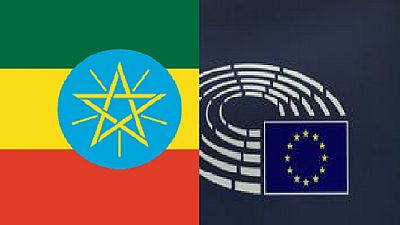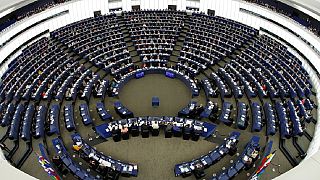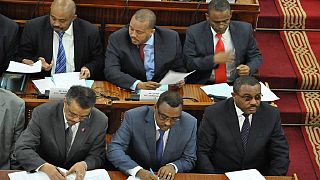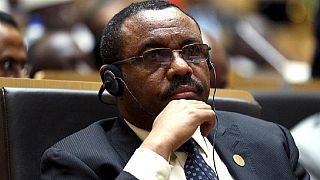Ethiopia
The Ethiopian government has formally responded to a resolution passed by Members of the European Parliament (MEPs) condemning the country’s human rights situation and what it called ‘political persecution.’
The response was carried in a communique issued by the Embassy of Ethiopia in Brussels, Belgium, which is incidentally the seat of the European Union.
The response titled ‘‘The EP Resolution on Ethiopia lacks understanding on important issues,’‘ tackled five major areas chiefly amongst them, the arrest of leading opposition figure, Dr. Merera Gudina, the state of emergency and Ethiopia’s internal probe into protest deaths.
The two other areas were on the human right situation and finally on the political space. The authorities insisted that the country was making headway with wide-ranging reforms, which needed the support of the MEPs and not their criticisms.
‘‘It can only be hoped that the European Parliament will find ways to positively support the Ethiopian Parliament and other Ethiopian government institutions in the implementation of this framework (human rights), not by criticizing, but through a constructive support,’‘ a section under the human rights situation in the country read.
Responding to the arrest and charge brought against Dr. Gudina, the authorities disclosed that he had violated deliberately the state of emergency rules by meeting with and holding discussions with the leader of a banned group (Ginbot-7) whiles he was in Brussels.
‘‘Dr. Merera Gudina knows very well that Ginbot-7 was designated as a terrorist organization by the Ethiopian Parliament due to its numerous terrorist actions in different parts of the country. By meeting and discussing with the leader of this organization in Brussels from 7-9 November 2016, Dr. Merera Gudina deliberately violated the state of emergency.
‘‘As a leader of a political party, he is particularly supposed to respect and protect the laws and to know that anyone who breaches the law will be held accountable, and the European Parliament should also acknowledge this,’‘ the statement added.
It also reiterated that the government went through the due process in declaring the state of emergency which was not decided for political motives but to preserve the country’s stability. It referred to the Ethiopia Human Rights Commission (EHRC) report into the protest deaths as a sign of Ethiopia’s ability to probe itself.
Ethiopia said it was disappointed that the MEPs failed to recognize that the government had opened talks with 17 opposition parties and had also launched its second National Human Rights Action Plan as part of efforts to deepen its democratic credentials.
The government has yet to comment on the resolution by 14 United States Senators who are also calling for the opening of the democratic space and respect for human rights.














01:04
Turkish democracy under pressure: Erdogan's top rival sentenced to two years in prison.
00:49
Barcelona's Yamal faces probe over allegations he hired people with dwarfism to perform at party
02:23
Cameroon: Mixed reactions in Yaoundé after Biya announces bid for another term
01:14
Boeing reaches settlement with man who lost entire family in 737 MAX Crash
Go to video
Togo protest crackdown raises fears of worsening political crisis
Go to video
Tunisia sentences prominent opposition leader to 14 years in prison